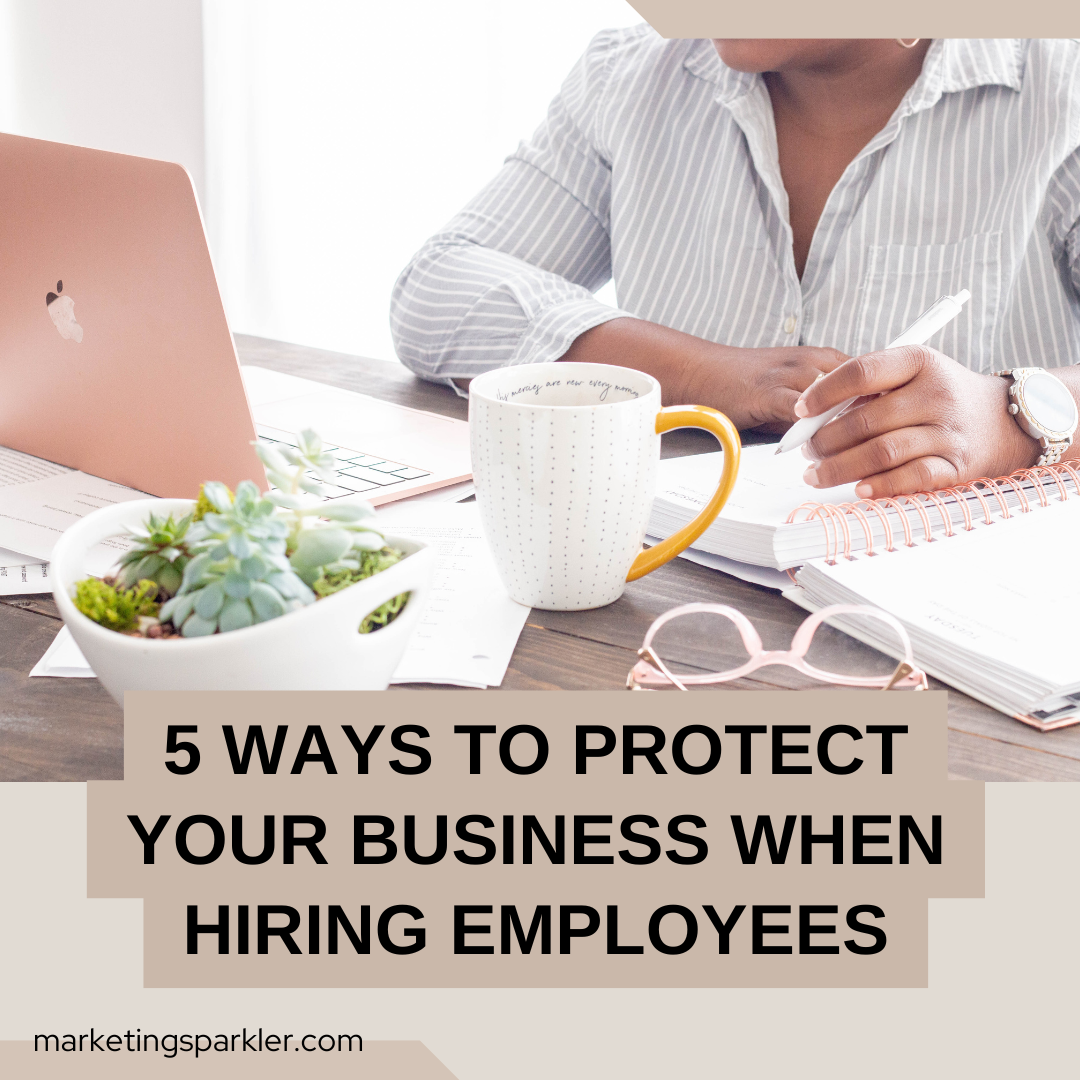Bringing employees on board your business is a huge undertaking, and having people working for you in any capacity can increase the risks for your business. This is because you’re adding another variable into the equation that can produce any number of favorable and unfavorable results, many of which are unpredictable.
Understanding your legal rights and responsibilities when you become an employer empowers you and your business. It’s not a decision to be made without forethought and planning, and ensuring you know what your legal rights are can give you peace of mind and help you move towards protecting all involved parties once you commit to hiring people.
5 Ways To Protect Your Business When Hiring Employees
EIN
Before you do anything else, get an EIN if you haven’t already done so. You can start by applying for an EIN online, and once you have these details, you can begin the process of adding more protection before hiring anyone.
State or Local Tax IDs
Next, look at whether you need state or local tax IDs. Your federal tax ID is your state one, but your local one is so your business can pay state taxes. There are only a handful of states don’t charge income tax, and a couple more only charge dividends, so you must understand your state’s requirements regarding business taxes so you can be compliant.
Hiring Laws
It’s imperative that you understand federal hiring laws and regulations and abide by them. This means understanding discrimination laws, what you can and cannot ask employees at interviews, how you determine who to hire, and the correct terminology and phrases so you don’t confuse applicants. For example, pregnancy, children’s marital status, age, sexual preferences, ancestry, and disabilities cannot be discussed at interviews, and doing so can open you up to lawsuits and accusations of discrimination.
Non-Compete Clauses
If you want to ensure your business is secure from employees taking on work that is similar to what you do or can compromise your business, then you need to have a contract drawn up discussing non-compete clauses and have them sign it. This way, you can take further action if they are found to breach these terms, and your business will be given added protection.
Again, check how this can be added to contracts and legally enforced in your state prior to including it, so you can be confident you are legally protected.
Insurance Coverage
Before hiring employees, it’s crucial to have workers’ compensation insurance in place. Although this is not mandated in all states, it is in the majority, so checking with your state can help you understand your legal requirements. Many employers often choose to obtain employer’s liability insurance, too, as this can help cover any gaps in workers’ compensation insurance and provide more comprehensive coverage.
Additionally, companies with over 50 employees must provide health insurance. This comprehensive coverage will reassure you that you are prepared for any eventuality.
The more you know, the more informed you are, and the easier it will be to put protections in place to protect your business from knowingly or accidentally breaking employment laws. This protects you and the business owner and your employees, too.
Ciao,
Miss Kemya


